Recent Blog Posts
Can I Be Detained By ICE If I Report a Crime?
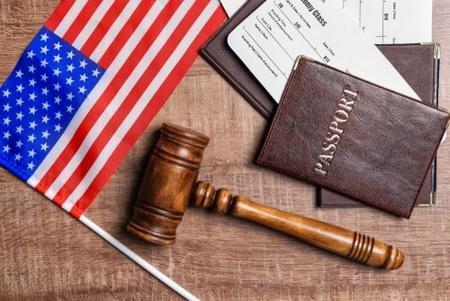 In our last blog, we looked at recently passed Illinois legislation that provides new protections for immigrants, including by making it more difficult for ICE to detain immigrants in Illinois jails. Since then, the Biden administration has issued new guidance to ICE with the intention of reducing the detention of immigrants throughout the U.S. Specifically, the new directive aims to protect immigrants who have been victims of crimes.
In our last blog, we looked at recently passed Illinois legislation that provides new protections for immigrants, including by making it more difficult for ICE to detain immigrants in Illinois jails. Since then, the Biden administration has issued new guidance to ICE with the intention of reducing the detention of immigrants throughout the U.S. Specifically, the new directive aims to protect immigrants who have been victims of crimes.
Protection for Crime Victims
U.S. Citizenship and Immigration Services (USCIS) offers several options for immigrant crime victims to apply for protection and lawful status. These include:
-
U Visas - The U nonimmigrant status is available to victims of crimes related to mental and physical abuse who are willing to help law enforcement with the prosecution of the crimes.
Recovering Compensation for Scarring and Disfigurement in Illinois
 If you have been injured due to someone else’s negligence in Illinois, you may be entitled to compensation for a variety of damages. This can include economic damages for your medical bills and lost wages, providing you with much-needed financial relief. However, not all of the effects of serious injuries are financial, and Illinois recognizes this by allowing injury victims to recover certain non-economic damages as well. One form of non-economic damages that may apply in your case is compensation for physical scarring or disfigurement.
If you have been injured due to someone else’s negligence in Illinois, you may be entitled to compensation for a variety of damages. This can include economic damages for your medical bills and lost wages, providing you with much-needed financial relief. However, not all of the effects of serious injuries are financial, and Illinois recognizes this by allowing injury victims to recover certain non-economic damages as well. One form of non-economic damages that may apply in your case is compensation for physical scarring or disfigurement.
Injuries That May Result in Disfigurement
A number of situations could cause injuries that result in permanent scarring or disfigurement. Some of the most common include:
-
Motor vehicle accidents - In a car, truck, or motorcycle crash, lacerations from broken glass and road rash can cause visible scarring. A collision can also cause dismemberment or complications that require the amputation of a limb.
Can My Spouse and I Continue to Own Property Together After Divorce?
 In a typical Illinois divorce, marital property is distributed equitably between spouses through a property division agreement or order. This means that any assets that the spouses previously owned together will become the sole property of one or the other. However, there are possible exceptions to this outcome. If you and your spouse can reach an agreement, you may be able to continue to jointly own certain properties and assets even after your divorce is complete.
In a typical Illinois divorce, marital property is distributed equitably between spouses through a property division agreement or order. This means that any assets that the spouses previously owned together will become the sole property of one or the other. However, there are possible exceptions to this outcome. If you and your spouse can reach an agreement, you may be able to continue to jointly own certain properties and assets even after your divorce is complete.
What Kinds of Property Are Amenable to Joint Ownership?
In theory, divorcing spouses could agree to maintain joint ownership of a wide variety of assets, but this is rarely realistic in practice. Though giving up some of your assets can be difficult, it is typically much less complicated to completely disentangle your financial interests from your spouse’s.
That said, there are some types of property for which it may be desirable to remain joint owners, at least for a time. This can include:
Governor Pritzker Signs Four Bills Protecting Immigrants in Illinois
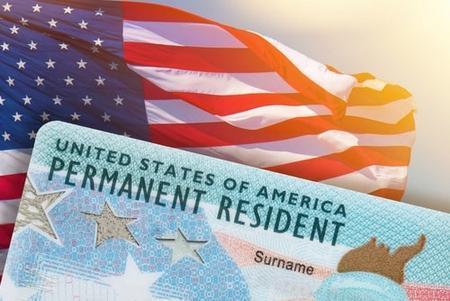 On Monday of this week, Illinois Governor J.B. Pritzker signed four bills into law and issued an executive order, all of which focus on improving the circumstances of immigrants throughout the state. These new developments may improve opportunities and quality of life for immigrants in Illinois, and, perhaps most notably, protect them from detention in removal and deportation cases. As a non-citizen or a family member of a non-citizen, these changes may have a positive impact on your situation in the near future.
On Monday of this week, Illinois Governor J.B. Pritzker signed four bills into law and issued an executive order, all of which focus on improving the circumstances of immigrants throughout the state. These new developments may improve opportunities and quality of life for immigrants in Illinois, and, perhaps most notably, protect them from detention in removal and deportation cases. As a non-citizen or a family member of a non-citizen, these changes may have a positive impact on your situation in the near future.
Ending ICE Contracts
Of the four bills signed by Governor Pritzker, the measure that may provide the greatest relief for immigrants is Senate Bill 667, the Illinois Way Forward Act. This bill prohibits new or renewed contracts between the federal Immigration and Customs Enforcement agency (ICE) and local Illinois governments that would allow immigrants to be detained in public jails while they wait for their removal hearings. The bill also terminates any active contracts as of January 2022, providing relief for immigrants currently detained under contracts of this nature in McHenry County, Kankakee County, and Pulaski County.
Can Injured Passengers Recover Damages From a Drunk Driver?
 When a person chooses to drive drunk, everyone around them is at risk of serious injury or death, including the driver themself, their passengers, and the occupants of other nearby vehicles. If you are injured in a collision with another driver who was drunk, you may pursue compensation through a personal injury claim.
When a person chooses to drive drunk, everyone around them is at risk of serious injury or death, including the driver themself, their passengers, and the occupants of other nearby vehicles. If you are injured in a collision with another driver who was drunk, you may pursue compensation through a personal injury claim.
However, according to recent data from the National Highway Traffic Safety Administration (NHTSA), a significant portion of serious drunk driving accidents are single-vehicle crashes. If you are injured in a single-vehicle accident while riding with a drunk driver, can you still recover compensation? In many cases, the answer is yes.
Serious Injuries in Single-Vehicle Drunk Driving Crashes
Drunk drivers can cause serious accidents whether or not there are other vehicles around. Alcohol impairment can cause a driver to lose control of their vehicle and veer off the road, which may cause a rollover. In other cases, a drunk driver may collide with a tree, utility pole, barricade, or another stationary object at high speed. Depending on the severity of the accident, the driver and passengers can suffer severe trauma to the head, spinal cord, limbs, and internal organs.
Federal Court Ruling Threatens the DACA Program
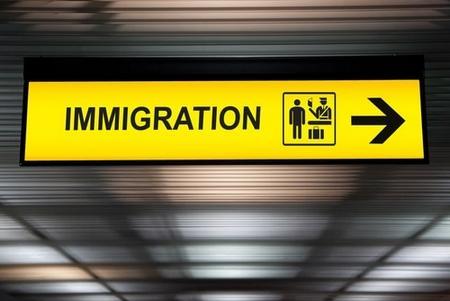 The United States has a complicated history with undocumented immigrants or those who come to the U.S. without lawful immigration status. Many undocumented immigrants are at risk of removal or deportation, but in recent years, the Obama and Biden administrations have attempted to provide protections for some, including through the Deferred Action for Childhood Arrivals (DACA) program. However, a recent ruling from a federal judge in Texas has called the future of this program into question.
The United States has a complicated history with undocumented immigrants or those who come to the U.S. without lawful immigration status. Many undocumented immigrants are at risk of removal or deportation, but in recent years, the Obama and Biden administrations have attempted to provide protections for some, including through the Deferred Action for Childhood Arrivals (DACA) program. However, a recent ruling from a federal judge in Texas has called the future of this program into question.
What is the DACA Program?
The DACA program, established by an executive directive from President Obama in 2012, allows certain undocumented immigrants to apply for the deferment of removal proceedings that may be initiated against them. Since the start of the program, applicants have been required to demonstrate that they meet certain criteria. For example:
How Can I Show the Court That I Need Spousal Maintenance in Illinois?
 Spousal maintenance is one of the most misunderstood aspects of the Illinois divorce process. While the division of marital assets is a part of all divorces, and child support is a part of all divorces involving minor children, spousal support is much more situational. You may be able to secure spousal support through a prenuptial agreement or a divorce settlement agreement with your spouse. However, if you cannot reach such an agreement, you will have to demonstrate to the court that maintenance is warranted in your case.
Spousal maintenance is one of the most misunderstood aspects of the Illinois divorce process. While the division of marital assets is a part of all divorces, and child support is a part of all divorces involving minor children, spousal support is much more situational. You may be able to secure spousal support through a prenuptial agreement or a divorce settlement agreement with your spouse. However, if you cannot reach such an agreement, you will have to demonstrate to the court that maintenance is warranted in your case.
Temporary Maintenance During the Divorce Process
Your need for financial support may begin as soon as you and your spouse separate and the divorce is filed. This is especially true if you do not have easy access to your marital assets. You can pursue temporary maintenance by filing a petition with the court that has jurisdiction over your divorce.
What Are My Responsibilities If I Agree to Sponsor an Immigrant?
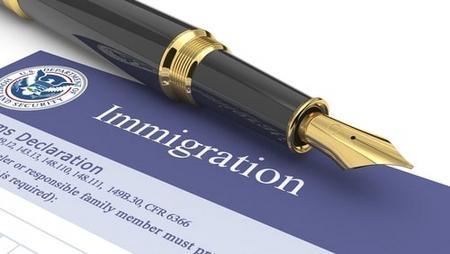 For an immigrant to come to the U.S. on a fiancé(e) or family-based visa, they need an affidavit of support from a sponsor who is a U.S. citizen or lawful permanent resident. Typically, the sponsor role is fulfilled by the person who files the petition for immigration on behalf of their relative or fiancé(e). If you intend to serve as a sponsor, it is crucial that you understand your responsibilities and obligations and what may happen if you do not fulfill them.
For an immigrant to come to the U.S. on a fiancé(e) or family-based visa, they need an affidavit of support from a sponsor who is a U.S. citizen or lawful permanent resident. Typically, the sponsor role is fulfilled by the person who files the petition for immigration on behalf of their relative or fiancé(e). If you intend to serve as a sponsor, it is crucial that you understand your responsibilities and obligations and what may happen if you do not fulfill them.
Commitments Made in an Affidavit of Support
When you sign an affidavit of support for another person’s immigration, the primary commitment you make is to take financial responsibility for supporting that person once they become a lawful permanent resident (LPR) of the U.S. After achieving LPR status, immigrants are legally permitted to work in the U.S., so they are often able to support themselves at least partially. However, if they cannot do so, you are responsible for providing for their financial needs.
What Evidence Does a Black Box Provide After a Truck Accident?
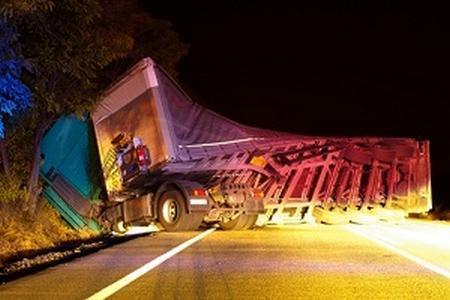 If you have been injured in a semi-truck accident, you have the right to claim compensation from the negligent driver or trucking company. However, to increase the chances of a successful claim, you will need substantial evidence to demonstrate the negligence of these parties. Often, one of the most important sources of evidence is the truck’s “black box,” more formally known as its Event Data Recorder (EDR).
If you have been injured in a semi-truck accident, you have the right to claim compensation from the negligent driver or trucking company. However, to increase the chances of a successful claim, you will need substantial evidence to demonstrate the negligence of these parties. Often, one of the most important sources of evidence is the truck’s “black box,” more formally known as its Event Data Recorder (EDR).
What Data Does a Truck’s Black Box Record?
An EDR is specifically designed to record data about a vehicle in the seconds surrounding a collision. EDRs are not federally mandated for commercial trucks, but most new vehicles have them installed. If a truck is equipped with an EDR, all of the following data may be recorded when an accident occurs:
- The truck’s speed and RPM immediately before, during, and immediately after the crash
- Engagement of the acceleration pedal and/or brakes in the time surrounding the collision
Sharing Summer Holidays With Your Co-Parent After Divorce
 An often-overlooked challenge for families who have been through a divorce is adjusting their holiday celebrations. Holidays after a divorce can be emotionally difficult, as they may be a reminder of happier times. They can also be logistically difficult, as parents must decide how to allocate time and arrange for exchanges and transportation fairly.
An often-overlooked challenge for families who have been through a divorce is adjusting their holiday celebrations. Holidays after a divorce can be emotionally difficult, as they may be a reminder of happier times. They can also be logistically difficult, as parents must decide how to allocate time and arrange for exchanges and transportation fairly.
Summer holidays like the Fourth of July, Memorial Day, and Labor Day may not carry as much importance as other holidays throughout the year, but they are still valuable times for parents and children to enjoy each other’s company. With this in mind, you should consider what you can do to make sure the summer holidays are still enjoyable for the whole family.
Create a Solid Parenting Plan
A parenting plan should not only include a regular parenting time schedule throughout the year, but also specific considerations for holidays. Illinois provides a statewide form to guide parents in the creation of a parenting plan, and this form offers various options for sharing the holidays. You and your co-parent may decide to alternate certain holidays every other year, or you may wish to create a more customized arrangement. For example, your plan could stipulate that one parent has the kids from Friday evening through Sunday morning of the Fourth of July weekend, while the other parent has the kids during the day on Sunday and into Monday.
 English,
English,
 Spanish,
Spanish,
 Polish,
Polish,
 Urdu
Urdu












 Make a Payment
Make a Payment



